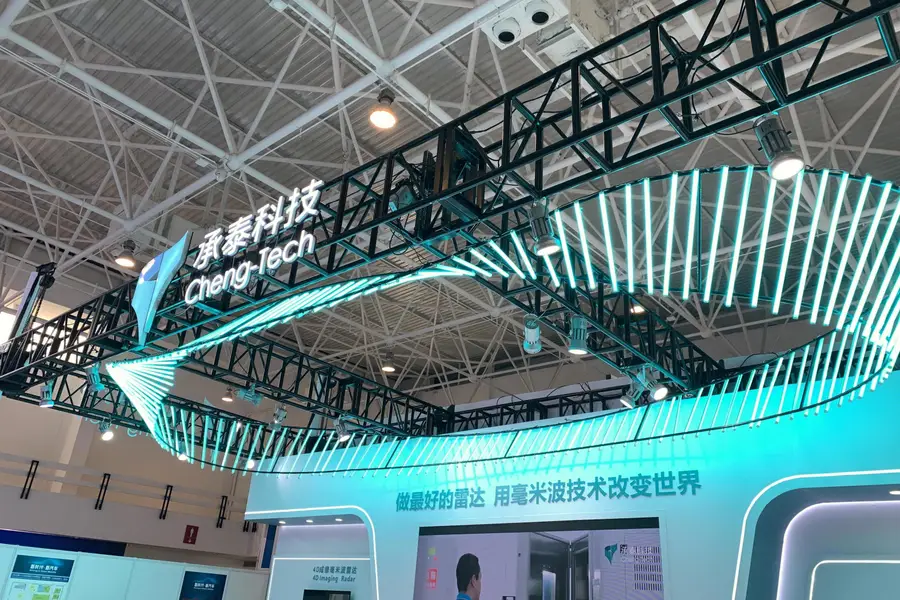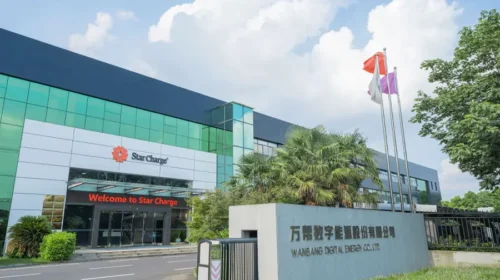BYD supplier Cheng-Tech bets on budget option for assisted driving

The automotive sensor maker is seeking IPO funds to boost its capacity, as intelligent driving systems move from luxury cars to mainstream models
Key takeaways:
- The company focuses on millimeter-wave radar, which is cheaper than laser-based LIDAR sensors but less precise
- It relies heavily on custom from car giant BYD, which generated 94% of company revenues last year
By Lee Shih Ta
Laser, cameras or radar? Smart driving technology is dividing into competing camps as it percolates down from luxury vehicles to budget cars.
Suppliers of high-end automotive LiDAR, which uses laser pulses as a positioning tool, are struggling to make a profit as driver assistance enters the mass car market. Meanwhile, a firm providing base-level driving technology to auto giant BYD (1211.HK; 002594.SZ) is taking a different route.
Shenzhen Cheng-Tech Co. Ltd., founded on the back of expertise built at Huawei,specializes in a type of short-wave radar as a cost-effective way to help drivers with tasks such as staying in lane or judging distances.
While LIDAR companies such as Hesai Technology (HSAI.US)and RoboSense Technology (2498.HK) target elevated levels of intelligent driving at L3 to L4 on the industry’s five-point scale, Cheng-Tech is content to focus on the lower rungs of L0 to L2+ with its millimeter-wave radar, a simpler technology with a potentially broader market base.
Doubling down on its strategy, the company has filed for Hong Kong IPO under relaxed listing rules for specialist tech companies, hoping to raise money to boost its research and production capacity, with Guotai Junan International as the sole sponsor.
Cheng-Tech’s short-wavelength systems have the benefit of being cheap to run, resistant to disruption and able to operate around the clock. The downsides are reduced resolution and precision, thus limiting their use for advanced assistance scenarios without support from additional sensors. But millimeter-wave radar comes at a fraction of the cost of LiDAR and does not require sophisticated technical input, making it an attractive option for deployment in mass-market vehicles.
Founded in 2016, the company specializes in millimeter-wave radar at a frequency of 77GHz for products such as front and corner radars or centralized radar processing systems. By June this year Cheng-Tech had launched seven key radar products covering L0 to L2+ levels of driver assistance.
The company ranked as the biggest domestic Chinese supplier of frontal millimeter-wave vehicle radar last year with 945,000 shipped units, giving it 9.3% of the market, according to data from China Insights Consultancy (CIC). In the automative millimeter-wave radar business as a whole, it came third by shipment volume, with a market share of 4.5%.
Huawei legacy
Chairman Chen Chengwen and co-founder Zhou Ke both cut their teeth at Huawei. Chen served as a senior product manager while Zhou held key technical positions at the Chinese tech firm, where the pair developed expertise in engineering and embedded algorithms that was applied to signal processing and hardware integration in the new company.
Revenues have been rising fast but the radar company has yet to break even on a net basis. Cheng-Tech logged revenues of 57.65 million yuan ($8.05 million) in 2022, followed by 157 million yuan in 2023 and 348 million yuan last year. Losses over the three-year period reached 197 million yuan, although in 2024 the loss narrowed 77% to 21.77 billion yuan, for an operating profit of 15.07 million yuan. Gross profit margin rose from 28.7% in 2022 to 33.9% in 2024, reflecting improved cost control and pricing power.
However, the company is facing a financial squeeze, with only 15.87 million yuan in cash and cash equivalents by the end of last year. Any urgent need to expand production or upgrade technology could require more financing in future.
Big dependence on BYD
The company has benefited from close ties with BYD, China’s biggest maker of electric vehicles, but the dependence also represents a risk. Since becoming a designated sensor supplier in 2022, Cheng-Tech has deployed its radar in more than 20 BYD models. In 2024, it earned 326 million yuan from BYD, accounting for 93.6% of its total operating revenue.
In February BYD announced an equality drive to make assisted driving more widely available, under a slogan “intelligent driving for all”. Since then, it has been equipping models retailing for less than 100,000 yuan with advanced driver-assistance functions, incorporating Cheng-Tech’s 4D millimeter-wave radar as a key component. However, any shift in BYD’s procurement strategy or a pivot to other suppliers would be a hammer blow to the company.
Moreover, millimeter-wave radar has a lower technological barrier to entry than LIDAR, leaving Cheng-Tech exposed to competition. Another company active in the same radar segment is Wuhu Sensortech Intelligent Technology, a subsidiary of Hikvision (002415.SZ). The rival firm, with stonger finances and superior production capacity compared to Cheng-Tech, is also a BYD supplier, offering corner, front and surround radars within its product mix.
Established companies such as HASCO Automotive and Suzhou Everbright Photonics are also stepping up their investment in this area, threatening to erode Cheng-Tech’s tech advantage and cloud its growth prospects in the medium to long term.
The company finished its Series C financing in May last year with a post-financing valuation of 1.32 billion yuan, far less than Hesai Technology’s 14.5 billion yuan and RoboSense Technology’s 7 billion yuan. However, RoboSense’s share price has tumbled nearly 30% since its IPO, while U.S.-listed Hesai Technology has shed 17% of its market value. Catering to the middle and lower end of the market, Cheng-Tech has a potentially wider range of customers but is hampered by limited pricing power. The road from here may be bumpy, but if it can tap new clients and export markets, Cheng-Tech could stay in the driving seat in an accelerating mass market for automotive intelligence. Still, as far as investors are concerned, the firm does not really deserve high-tech status and should probably be viewed as one of many auto industry suppliers out there.
To subscribe to Bamboo Works weekly free newsletter, click here




